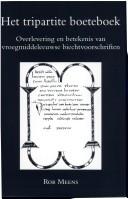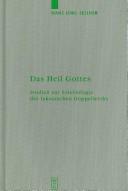| Listing 1 - 7 of 7 |
Sort by
|
Book
ISBN: 9071879011 Year: 1988 Publisher: Gent Koninklijke Bond der Oostvlaamse Volkskundigen
Abstract | Keywords | Export | Availability | Bookmark
 Loading...
Loading...Choose an application
- Reference Manager
- EndNote
- RefWorks (Direct export to RefWorks)
Tweede druk. 28 Annex bij de tentoonstelling : Rendez-vous met magere Hein (N11745)
Folklore --- ethnology --- grave goods --- anno 1800-1899 --- Flanders --- dood --- rouw --- Funérailles --- Religions --- Death --- Mourning customs --- History --- Museum voor Volkskunde Gent --- Exhibitions --- Belgium --- Social life and customs --- History. --- Exhibitions. --- Philosophical anthropology --- Christian dogmatics
Book
ISBN: 9783825363215 382536321X Year: 2014 Volume: 54 Publisher: Heidelberg: Universitätsverlag Winter,
Abstract | Keywords | Export | Availability | Bookmark
 Loading...
Loading...Choose an application
- Reference Manager
- EndNote
- RefWorks (Direct export to RefWorks)
Die hier vorgelegte, wenig bekannte Schrift des späten 15. Jahrhunderts, ein Plädoyer für die ewige Seligkeit des Aristoteles, verteidigt dessen umstrittenste Lehren gegen den Vorwurf der Gottlosigkeit, vornehmlich indem sie dieses Thema in das generelle Problem des jenseitigen Loses aller gerechten Heiden integriert. Zahlreiche theologische Argumente für die Heilsmöglichkeit Ungläubiger werden systematisch nach Art einer Summa vorgestellt. Das Hauptkriterium ist dabei heilsgeschichtlich: Die Zeitenwende der Inkarnation scheidet die Heiden in zwei völlig gegensätzliche Kategorien. Während die vor diesem Ereignis lebenden Nichtchristen (in der Sache, wenn auch nicht dem Namen nach) geradezu zu christlichen Heiligen werden können, sind nach Christus alle Ungläubigen - mit Ausnahme seltener Wilder, die schuldlos in "unüberwindlicher Unkenntnis" des Evangeliums leben - ‚eo ipso‘ zur ewigen Verdammnis bestimmt. Der Hauptgrund dafür ist das Wunder der schnellen Ausbreitung des Christentums, das in nur 30 Jahren nach der Passion Christi die Grenzen des Erdkreises erreicht haben soll. Seither gilt jede auch nur gerüchteweise Kenntnis Christi und des Christentums für alle Menschen als Verpflichtung zum Glauben, von der kein Unwissen mehr dispensiert. Merkwürdigerweise entfaltete sich dieses Theorem von der frühen, rasant schnellen Ausbreitung des Evangeliums bis ans Ende der Welt just zu einem Zeitpunkt, an dem es endgültig durch die Fakten, d.h. die neu entdeckten Völker Amerikas widerlegt wurde.
Christian dogmatics --- Lambertus de Monte Domini --- anno 1200-1799 --- Salvation outside the church --- Paganism --- History of doctrines --- Aristotle --- Lambert, --- Religion --- Philosophie médiévale --- Philosophie médiévale. --- Salvation outside the church - History of doctrines - Middle Ages, 600-1500 --- Aristotle - Religion --- Lambert, - von Heerenberg, - -1499, - author - Quaestio de salvatione aristotelis

ISBN: 9065502610 9789065502612 Year: 1994 Volume: 41 Publisher: Hilversum : Verloren,
Abstract | Keywords | Export | Availability | Bookmark
 Loading...
Loading...Choose an application
- Reference Manager
- EndNote
- RefWorks (Direct export to RefWorks)
Christian dogmatics --- anno 500-1199 --- Penance --- Penitentials --- Confession --- Pénitence --- Pénitentiels --- History --- Histoire --- Europe --- Church history --- Histoire religieuse --- -Penance --- 27 "04/14" --- -Attrition --- Contrition --- Church discipline --- Forgiveness of sin --- Sacraments --- Absolution --- Repentance --- Penitential books --- Kerkgeschiedenis--Middeleeuwen --- History of doctrines --- -Europe --- Council of Europe countries --- Eastern Hemisphere --- Eurasia --- History. --- -Kerkgeschiedenis--Middeleeuwen --- -27 "04/14" --- Pénitence --- Pénitentiels --- Attrition --- Penitentials - - History --- Penance - History --- Europe - Church history - 600-1500
Book
ISBN: 9782872099320 2872099328 Year: 2009 Volume: 4 Publisher: Louvain-la-Neuve: Academia-Bruylant,
Abstract | Keywords | Export | Availability | Bookmark
 Loading...
Loading...Choose an application
- Reference Manager
- EndNote
- RefWorks (Direct export to RefWorks)
Depuis des siècles, les connaissances scientifiques interpellent certains aspects des religions. La confrontation reprend aujourd’hui vigueur, notamment à propos de la création du monde et de l’homme par Dieu. Ce volume emprunte la voie d’un débat rationnel en évitant de l’enfermer dans un affrontement aveugle entre croyants et athées. Des scientifiques de la nature présentent la théorie de l’évolution et de l’hominisation ; leurs propos parlent de théories scientifiques et non pas de doctrines. Des théologiens et exégètes, chrétiens et musulmans, proposent leur approche des récits fondateurs relatifs à la création de l’homme et formulent leur manière de comprendre l’idée de création, notamment face aux discours des sciences. Des auteurs venant des sciences humaines éclairent par leurs analyses les débats contemporains. Les sciences ne cesseront d’interpeller la question du sens, celle qui concerne l’être humain dans le cosmos. Cette question mérite plus que l’affrontement entre des vérités toutes faites. Car personne ne dispose de toutes les réponses.
Sociology of religion --- Islam --- Christian dogmatics --- Islam and science. --- Religion and science. --- Evolution --- Islam et sciences --- Religion et sciences --- Religious aspects --- Christianity. --- Aspect religieux --- Christianisme --- Création --- --Creation --- Religion --- --Islam and science --- Religion and science --- Christianity --- 234.23 --- 297.116*1 --- 215 --- Geloof en wetenschap. Openbaring en rede --- Relatie Islam tot Christendom --- Godsdienst en wetenschap --- 297.116*1 Relatie Islam tot Christendom --- 234.23 Geloof en wetenschap. Openbaring en rede --- Islam. --- Islam and science --- Christianity and science --- Geology --- Geology and religion --- Science --- Science and religion --- Science and Islam --- Philosophy --- Creation --- Emergence (Philosophy) --- Teleology --- Religious aspects&delete& --- Creation - Religious aspects --- Evolution - Religious aspects - Islam --- Evolution - Religious aspects - Christianity

ISSN: 01716441 ISBN: 9783110196993 3110196999 3110978636 Volume: 152 Publisher: Berlin ; Boston, Mass. ; New York Alfred Töpelmann ; de Gruyter
Abstract | Keywords | Export | Availability | Bookmark
 Loading...
Loading...Choose an application
- Reference Manager
- EndNote
- RefWorks (Direct export to RefWorks)
Christian dogmatics --- Luke [Evangelist] --- Salvation --- Biblical teaching --- Bible --- Bible. --- Criticism, interpretation, etc --- 225.08*6 --- 226.4 --- 226.6 --- 225.08*6 Theologie van het Nieuwe Testament: heilsgeschiedenis --- Theologie van het Nieuwe Testament: heilsgeschiedenis --- Evangelie volgens Lucas --- Handelingen der apostelen. Akten van de apostelen --- Luc (Book of the New Testament) --- Lucas (Book of the New Testament) --- Luka (Book of the New Testament) --- Lukan săn zăn︠g︡g (Book of the New Testament) --- Lukas (Book of the New Testament) --- Luke (Book of the New Testament) --- Lūqā (Book of the New Testament) --- Nuga pogŭm (Book of the New Testament) --- Ruka den --- Ruka ni yoru fukuinsho --- Acts (Book of the New Testament) --- Acts of the Apostles --- Chongdo haengjŏn --- Sado haengjŏn --- Criticism, interpretation, etc. --- Salvation - Biblical teaching
Book
ISBN: 9061527376 Year: 1991 Volume: vol 9 Publisher: Leuven Davidsfonds
Abstract | Keywords | Export | Availability | Bookmark
 Loading...
Loading...Choose an application
- Reference Manager
- EndNote
- RefWorks (Direct export to RefWorks)
afterlife --- sermons --- hellestraf --- heaven --- hell --- vagevuur --- Iconography --- History of civilization --- preaching --- Christian church history --- godsdienst --- Christian dogmatics --- anno 1700-1799 --- anno 1600-1699 --- Belgium --- Belgique ; histoire --- België ; geschiedenis --- Histoire ecclésiastique --- Kerkgeschiedenis --- Histoire religieuse --- Légendes --- Pays-Bas (anciens) --- Pèlerinages --- #GBIB:SMM --- 251 "15/17" --- 252*83 --- 27 "15/17" --- #GOSA:VIII --- #gsdb8 --- #GROL:SEMI-252*8 --- #GGSB: Pastoraal --- #GGSB: Dood & Levenseinde --- #GGSB: Homiletiek --- 17de eeuw --- 18de eeuw --- 933.9 --- Hel --- Hemel --- Hiernamaals --- Nederlanden --- Vagevuur --- 252*83 Preken over moraal, spiritualiteit en uitersten --- Preken over moraal, spiritualiteit en uitersten --- 251 "15/17" Homiletiek. Verkondiging. Prediking:--nieuwe tijd --- Homiletiek. Verkondiging. Prediking:--nieuwe tijd --- Kerkgeschiedenis--Moderne Tijd --- hell [doctrinal concept] --- Future life --- Sermons --- Sermons [Dutch ] --- History and criticism --- Christelijke dogmatiek --- Christelijke kerkgeschiedenis --- Iconografie --- Cultuurgeschiedenis --- preken --- hel --- hemel --- hiernamaals --- prediken --- België --- Pastoraal --- Dood & Levenseinde --- Homiletiek
Book
ISBN: 9789462700017 946270001X 9789461661333 9461661339 Year: 2014 Volume: 36 Publisher: Leuven, Belgium
Abstract | Keywords | Export | Availability | Bookmark
 Loading...
Loading...Choose an application
- Reference Manager
- EndNote
- RefWorks (Direct export to RefWorks)
Criticism of monastic life by one of Europe's major Renaissance figures.In his letter Against Monastic Life (1514-17) Andrea Alciato, an Italian jurist and writer famous for his Emblemata, urges his friend Bernardus Mattius to reconsider his choice of monastic life. Alciato makes his argument by criticizing religious superstition, the Church's hierarchy, and monastic practices, particularly the Franciscans' hypocrisy, wealth, and divisiveness. Instead, he defends a stoic, civic humanism. Due to the troubled history of this unique manuscript and the inadequacies of the two subsequent editions,
Academic collection --- Conferences - Meetings --- Monastic and religious life --- Christianity and religious humanism. --- Christianity and other religions --- Humanism, Religious --- Monastic life --- Spirituality (in religious orders, congregations, etc.) --- Monasticism and religious orders --- Spiritual life --- Vows --- History and criticism. --- Christianity --- Franciscans --- Alcantarines --- Bernardyni --- Cordeliers --- Discalced Friars Minor --- Família Franciscana --- Frades Menores --- Frailes Menores --- Franciscains --- Franciscains mineurs --- Franciscan Discalceati --- Franciscan Order --- Franciscan Reformati --- Franciszkanie --- Frant︠s︡iskanskiĭ orden --- Frant︠s︡iskant︠s︡y --- Frati minori --- Fratres minores --- Frères mineurs --- Friars, Gray --- Friars Minor --- Gråbrøderne --- Gray Friars --- Grey Friars --- Mala braća --- Minderbrüder --- Minoriten --- Minorites --- O.F.M. --- Observants --- OFM --- Ojcowie Franciszkanie --- Ordem dos Frades Menores --- Ordem dos Franciscanos --- Ordem Franciscana --- Orden de Frailes Menores --- Orden de los Frailes Menores --- Orden Franciscana --- Orden sv. Frant︠s︡iska --- Order of Friars Minor --- Ordine dei Frati Minori --- Ordine dei minori --- Ordre des frères franciscains mineurs --- Ordo Fratrum Minorum --- Reformati --- Reformed Franciscans --- Seraphic Order --- Capuchins --- Conventuals --- Franciscan Recollects --- Christian dogmatics --- Christianity and religious humanism --- History and criticism --- Christendom en religieus humanisme --- Christianisme et humanisme religieux --- Vie religieuse et monastique --- Humanisme --- Early works to 1800 --- Ouvrages avant 1800 --- Aspect religieux --- Christianisme --- History --- Sources --- church history --- Andreas Alciatus --- Correspondence --- Monastic and religious life - History and criticism
| Listing 1 - 7 of 7 |
Sort by
|

 Search
Search Feedback
Feedback About UniCat
About UniCat  Help
Help News
News